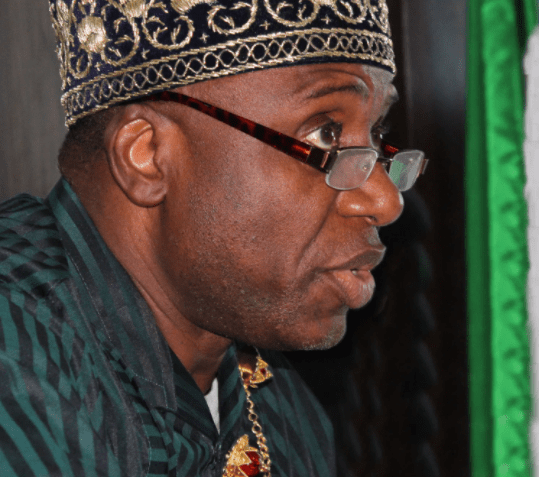
Nigerian ship owners and other maritime industry stakeholders have blamed the Minister of Transportation, Rotimi Amaechi, for scuttling the disbursement of the Cabotage Vessel Financing Fund (CVFF).
Amaechi said recently that President Muhammadu Buhari has withdrawn an earlier approval granted by the Federal Government for the disbursement of the CVFF.
Founding President, Nigerian Shipowners Association (NISA), Chief Isaac Jolapamo, while reacting to the development, said he would take necessary step to ensure that the Fund, which he said does not belong to the government but to indigenous ship owners, is disbursed.
“As an individual who has interest in the fund, I have written to the Minister to request for official information on the Cabotage Vessel Financing Fund (CVFF) under the Cabotage Act. There has been so much discussion on this that the fund does not belong to the ship owners and some ship owners who do not own ships are spoiling to have part of the money.
“The drama around CVFF is beginning to unfold. Unfortunately, with my experience, I know that except we do something fast, this present government will go away with blue murder because by next year, government concentration will be on election.
“Like I said earlier, I have written to the Minister of Transportation. It is based on the Freedom of Information Act and if they are unable to provide it, I would go further than that. I have woken myself from slumber now. Enough is enough!” Chief Jolapamo told SHIPS & PORTS on Friday.
Another ship owner, Aminu Umar, said the suspension of the disbursement will have negative effect on the development of shipping in Nigeria.
He said, “We are talking of the contributions of indigenous ship owners since 2007. Many of the indigenous ship owners were looking forward to the disbursement of this fund to increase their fleet capacity. The Minister of Transportation will have to intervene again to ensure the fund is disbursed.”
Umar, who is also a former President of NISA, said if Nigerians do not gain access to the fund to acquire more vessels to increase capacity, “there will be problems especially now that Nigeria has signed in to the Africa Continental Free Trade Area Agreement (AfCFTA)”.
“With AfCFTA, there will be more intra-African trade. There will be more cargoes that will be moved from one African country to another. Without newer ships, we cannot participate in such trade. If we don’t have the money to invest in shipping, it will be very difficult for us to participate in AfCFTA.
“Don’t forget that we have Dangote Refinery coming up. We have Dangote Fertilizer coming up too. In Bonny, we have the LPG gas coming up. Some other African countries will need urea that will be produced by Dangote Fertilizer. Some African countries will need LPG gases. These are a lot of shipping activities. Are we going to stand by while foreigners cart away revenue that should accrue to Nigeria?
“If the CVFF is disbursed and indigenous ship owners renew their fleets, the country will rake in a lot of foreign exchange earnings from the expected shipping activities that will come with AfCFTA,” Umar added.
A Director at the Lagos Business School, Dr. Frank Ojadi, said he is sure that the disbursement of fund is not cancelled but only suspended.
He said, “Now, if anyone is thinking of investing in vessels to compete with Maersk Line and the rest, then the person has a long way to go. So, let us wait and see what will revolve over time. What I feel is that the whole reason perhaps might be that the government wants to strengthen the system they have in place, so that the money does not get misused and misplaced.”
However, a maritime lawyer, Osuala Nwagbara, said it was wrong for the government to suspend the disbursement of the CVFF.
“That decision is based on a wrong notion that the fund is a public fund. I read about it in the newspapers and I believe that the decision was wrongly advised because CVFF is a fund that must be disbursed to promote indigenous shipping in Nigeria. If you look at Sections 42, 43, 44, 45 of the Cabotage Act, it is very clear what the purpose of the Cabotage Vessel Financing Fund (CVFF) is and that purpose is to promote indigenous tonnage in shipping under the Cabotage regime.
“The two percent that each contributor makes on the contract sum within the businesses carried out under the Cabotage regime is meant to grow a fund which must be in the custody of NIMASA and which is disbursable to indigenous ship owners whether individual or a company and the intendment is to grow Nigeria tonnage.
“So, the fund is not a public fund. It is meant for stakeholders specifically ship owners in the maritime industry, to the extent that it does not belong to one person. One may say well, it has element of the public being that ship owners owned the fund and it is on this note that I object to giving the fund to individual ship owners,” he told SHIPS & PORTS.
Copyright Ships & Ports Ltd. Permission to use quotations from this article is granted subject to appropriate credit given to www.shipsandports.com.ng as the source.